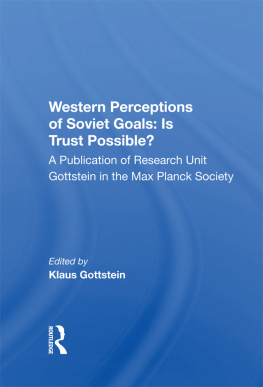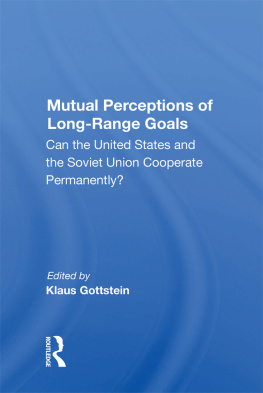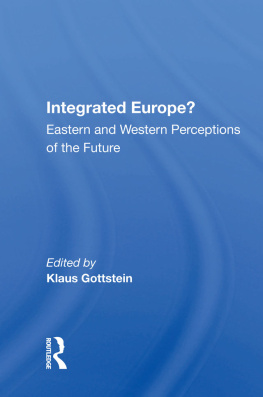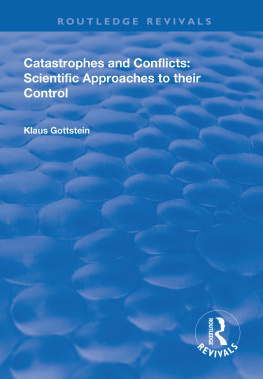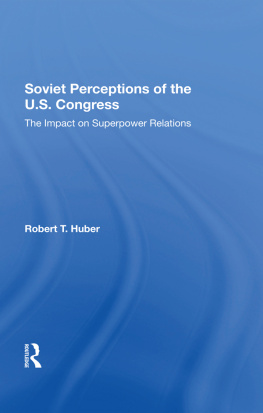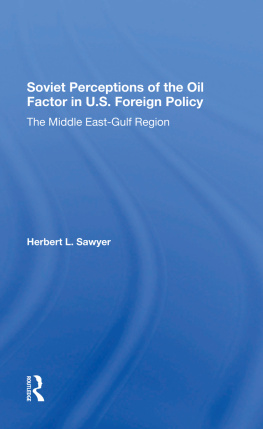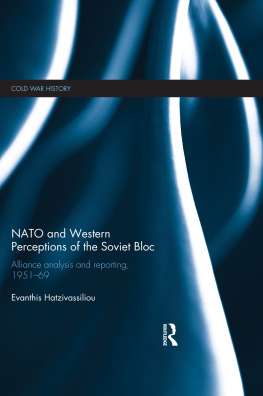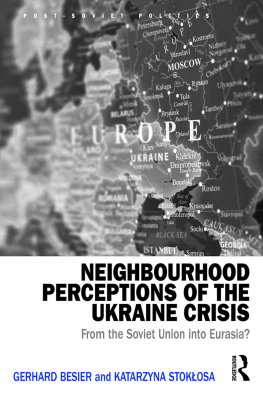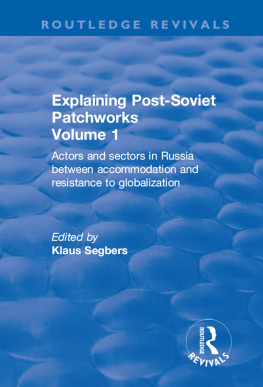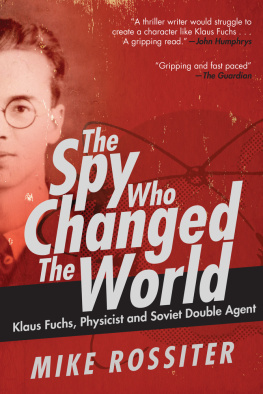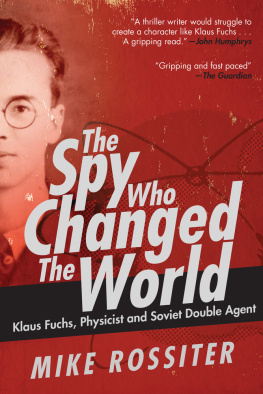Klaus Gottstein, Editor
Western Perceptions of Soviet Goals: Is Trust Possible?
A Publication of Research Unit Gottstein in the Max Planck Society
With contributions by:
Karl Birnbaum, Jonathan Dean, Raymond Garthoff, Wolfgang Heisenberg, Ren Herrmann, Friedrich Kuebart, Don Munton, Gottfried Niedhart, Nikolai Nowikow, Michael Richter, Rita Rogers, Eberhard Schneider, Eberhard Schulz, Leon V. Sigal, Bruce L. R. Smith, Manfred Spth, Hans A. Tolhoek, Philip Windsor
First published 1989 by Westview Press
Published 2019 by Routledge
52 Vanderbilt Avenue, New York, NY 10017
2 Park Square, Milton Park, Abingdon, Oxon OX14 4RN
Routledge is an imprint of the Taylor & Francis Group, an informa business
Copyright 1989 in Frankfurt am Main by Campus Verlag
All rights reserved. No part of this book may be reprinted or reproduced or utilised in any form or by any electronic, mechanical, or other means, now known or hereafter invented, including photocopying and recording, or in any information storage or retrieval system, without permission in writing from the publishers.
Notice:
Product or corporate names may be trademarks or registered trademarks, and are used only for identification and explanation without intent to infringe.
Library of Congress Cataloging-in-Publication Data
Western perceptions of Soviet goals: is trust possible? / edited by
Klaus Gottstein.
p. cm.
Bibliography: p.
Includes index.
ISBN 0-8133-0969-7
1. Soviet Union--Foreign relations--1985- I. Gottstein, Klaus,
1924
DK289.W47 1989
327.47--dc20 89-35043
ISBN 13: 978-0-813-30969-9 (hbk)
The relations between East and West are in a state of transformation and redefinition. It is not clear yet which form they will take in the years to come. One basic fact, however, remains unchanged from years past: Even though we do not know the future, even though politicians in East and West often do not, and cannot, know the long-range plans, intentions, and imaginations of their opposite numbers, they do have some perceptions, consciously or subconsciously, of potential developments for which their own side will have to be prepared. The atmosphere between NATO and Warsaw Pact, certainly, is now more relaxed than ever. However, we cannot be sure that a relapse into the Cold War will not happen. But even if such a relapse will not occur, the degree to which East-West cooperation will become possible in arms reduction and in the tackling of environmental and other global problems will certainly depend on the mutual perceptions of the long-range goals of the other side.
At this Research Unit of the Max Planck Society we decided, in 1984, to investigate various Western views on the potential future developments in the U.S.S.R., as well as Soviet views on the future developments in the West, as far as they influence long-range planning. The method chosen was to organize conferences in which Western observers present their perceptions of Soviet developments, and Eastern observers their perceptions of the developments in Western countries. The arguments given to support these perceptions are then to be discussed among the participants.
As mentioned above, we have selected this topic of the perceptions, in East and West, of the long-range goals of the other side because it seems obvious that these perceptions are the main obstacle to arms reduction and closer cooperation between East and West. So far, on both sides, politicians seemed to consider it prudent to base their long-range planning on worst-case scenarios with respect to the intentions, or goals, of the other side. The goals as such may not even exist in reality - at least it will be very difficult to identify them in the heads of leaders - but the perceptions of these goals do exist in the worst-case scenarios prepared by both sides. They are real because they determine policies. The worst-case scenarios about what the other side might be planning to do are often based on experiences of the past which are no longer valid, on wrong interpretations of observed developments, incomplete or faulty information and on misperceptions and misunderstandings of various kinds. What are their sources? It is important to analyze the origin of these views. On what kind of education or indoctrination, on which ideas, rational arguments, social structures, historical memories, biographical experiences, ideological biasses, enemy images are they based? To what extent will it be possible to identify some of these perceptions as clearly due to misunderstandings? Which of them may be considered as normative or strategic in the sense that they are intentionally and/or artificially upheld in order to influence one's own public or that of the other side?
How does each side perceive itself? How does each side believe it is perceived by the other side? In particular: What do we expect from each other? What could be done, in the long run, to avoid crises and improve cooperation under existing perceptions? In what respect are the perceptions changing? If it is cooperation that is required for solving global problems, what type of changes are required in the mutual perceptions of Grand Strategies? Which measures would have to be taken by either side if existing perceptions were to be changed intentionally in a direction representing greater trust? (A well-known example from the military field: The Soviet Union claims to have a defensive doctrine but, until very recently, considered the capacity for vigorous counter-attack as the best defense. To Western observers this capacity looks like readiness for attack. Soviet analysts consider this conclusion to be a misperception. A measure helpful for changing this alleged misperception would be a restructuring of Soviet forces so that fears of a sudden attack are allayed. - Similar examples can be found in the fields of foreign policy, economy, ideology, etc. I am sure that Soviet observers could give examples where Western behavior seems to contradict Western policy declarations, and where Western re-arrangement measures would help to allay Soviet security concerns.)
If some changes of basic beliefs are difficult or impossible to effect in the near future, to what extent can we live, and cooperate, under the old perceptions? Are there specific recommendations that could be made under different perceptions and assumptions? Are there areas of consensus, and which are the arguments leading to dissent?
We began by convening Western scholars, diplomats, representatives of industry and military experts to consider a problem which was, and still is, a major subject of controversy in East-West relations as well as in interalliance debate: the impact of the SDI project on strategic, crisis and arms control stability. One main result of that conference, held near Munich in 1986, was: the judgment whether SDI has a positive or negative effect on stability depends on the mutual perceptions of the long-range intentions of the other side. Our next step was an International Workshop on Western perceptions of long-range goals of Soviet policy, held at Ringberg Castle, the Conference Centre of the Max Planck Society, in November of 1987. It was attended by 27 scientists, scholars, and diplomats from nine countries. This volume contains the papers presented at this Workshop, the transcriptions of the discussion and three additional papers by Ambassador Jonathan Dean, Professor Raymond Garthoff and Dr. Nikolaj Nowikow who had been invited but were unable to attend because of other commitments.


